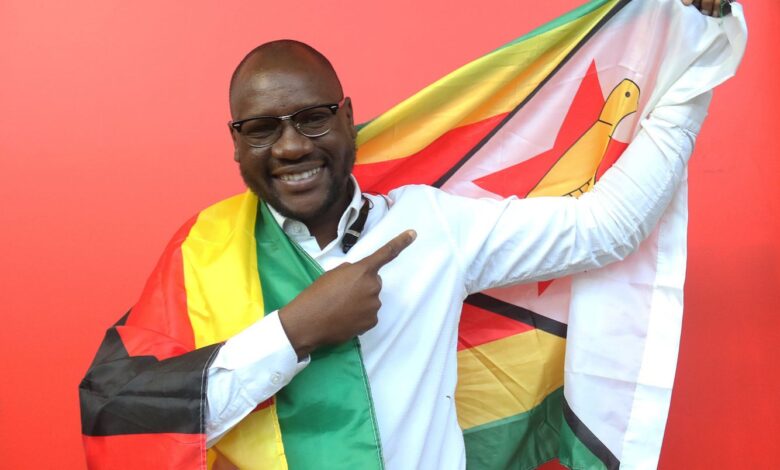If Zimbabweans Were a South African Tribe, They Would Be the 3rd Largest in the Country

South Africa is known for its rich cultural diversity, with numerous ethnic groups and tribes forming the backbone of its societal fabric. Among these are well-known tribes like the Zulu, Xhosa, Sotho, and Tswana. However, there has been a significant influx of Zimbabweans into South Africa over the years, primarily due to economic and political challenges in Zimbabwe. If Zimbabweans were recognized as a distinct tribe within South Africa’s Black African population, where would they rank in terms of population size?
This article explores the implications of treating Zimbabweans as a separate “tribe” in South Africa, analyzing their population size relative to existing ethnic groups and tribes.
Estimating the Zimbabwean Population in South Africa
Estimates of Zimbabweans living in South Africa vary widely due to factors such as undocumented migration and differing survey methods. Most estimates range between 1 million and 5 million Zimbabweans residing in South Africa. For this hypothetical scenario, we’ll use the upper estimate of 5 million Zimbabweans.
Current Demographics of South Africa
According to recent estimates, South Africa’s total population stands at approximately 60.6 million people. The population breakdown by major racial groups is as follows:
• Black African: 49.1 million (80.9% of the total population)
• Coloured: 5.3 million (8.8%)
• White: 4.7 million (7.8%)
• Indian/Asian: 1.6 million (2.6%)
Major Black African Tribes in South Africa
Among the 49.1 million Black Africans, there are several dominant ethnic groups:
Tribe Estimated Population
Zulu 12 million
Xhosa 9 million
Sotho (Basotho) 5 million
Tswana (Batswana) 4 million
Tsonga 3.5 million
Venda 2 million
Ndebele 1.5 million
Zimbabweans as a Hypothetical Tribe
If we assume that Zimbabweans formed a unified “tribe” within the Black African population and had a population of 5 million, they would rank among the top three largest tribes in South Africa. Here’s how they would fit into the hierarchy:
Ranking of Black African Tribes Including Zimbabweans (5 Million)
1. Zulu – 12 million
2. Xhosa – 9 million
3. Zimbabweans (hypothetical tribe) – 5 million
4. Sotho (Basotho) – 5 million (approximately equal in size)
5. Tswana (Batswana) – 4 million
6. Tsonga – 3.5 million
7. Venda – 2 million
8. Ndebele – 1.5 million
Implications of Zimbabweans as a Distinct Tribe
1. Significant Influence in Society
A population of 5 million would give Zimbabweans considerable influence, comparable to the Sotho people. They would form one of the largest demographic and cultural groups in South Africa. This influence could extend to politics, culture, and economics, particularly in areas with high concentrations of Zimbabwean nationals, such as Johannesburg, Pretoria, and other major cities.
2. Cultural Diversity within the Zimbabwean Population
Unlike South African tribes, which are relatively homogeneous, Zimbabweans encompass multiple ethnic groups, primarily the Shona and Ndebele. If recognized as a single tribe, this internal diversity would make them unique compared to other more unified tribes like the Zulu or Xhosa.
3. Socioeconomic Contributions
Zimbabweans in South Africa contribute to various sectors, from construction and domestic work to academia and healthcare. Recognizing them as a large tribe emphasizes their economic contributions and the challenges they face, such as xenophobia and access to legal documentation.
4. Potential for Political Representation
A population size of 5 million would warrant significant political representation if Zimbabweans were an official ethnic group. In South Africa’s political system, demographic size often influences representation and policymaking priorities.
Conclusion
If Zimbabweans in South Africa were considered a distinct tribe with a population of 5 million, they would rank as the third-largest Black African tribe, tied with or just slightly ahead of the Sotho people. This highlights the substantial demographic presence and potential societal impact of Zimbabweans in South Africa. While this scenario is purely hypothetical, it illustrates the significant role Zimbabweans play in the country’s social and economic landscape. Recognizing their contributions and addressing the challenges they face could foster greater social cohesion and mutual understanding in South Africa’s diverse society.




